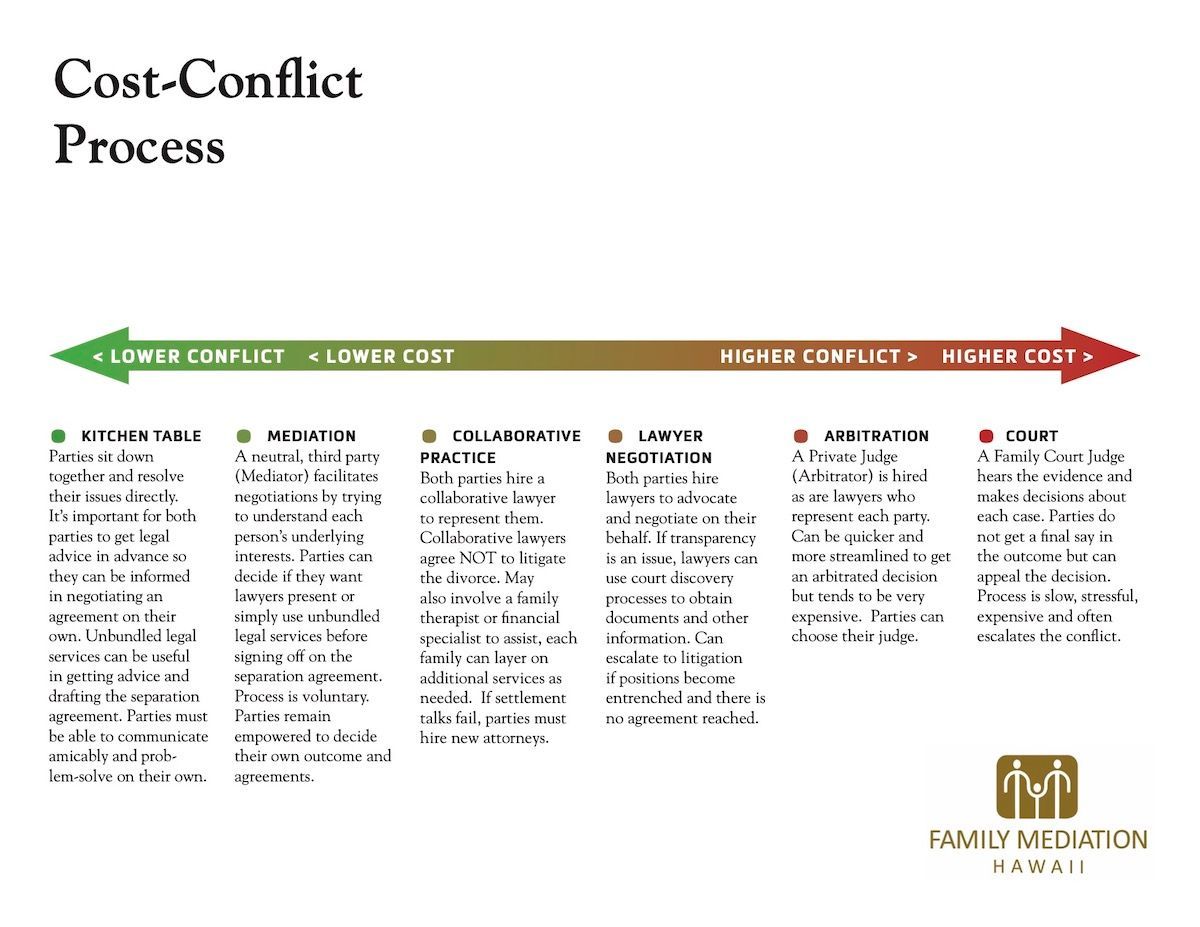Relocating After Divorce in Hawai‘i
Tips, Legal Considerations, and Co‑Parenting Guidance

Life after divorce often brings big changes. For many families in Hawai‘i, one of the most significant—and challenging—changes is relocation. Whether it’s a move to another island, the mainland, or even within your own community, relocation after divorce or separation raises important legal, emotional, and practical questions. If you’re considering a move, here’s what you should know and how mediation can help.
________________________________________
Legal Considerations in Hawai‘i
When parents share custody, relocation isn’t a simple decision. Hawai‘i courts evaluate relocation requests by considering the best interests of the child. Some key factors include:
• Impact on the child’s relationship with both parents
• Reasons for the move (job opportunities, family support, cost of living, education, etc.)
• Feasibility of preserving strong parent child relationships despite distance
• Practical considerations like travel time, costs, and school stability
Even if a parent has sole physical custody of the child or children, they may need the other parent to agree to the move because relocation significantly impacts custody and timesharing. If the non-moving parent does not agree to the relocation, the parent requesting relocation may need to go to court to argue that the relocation plan is in the child or children’s best interests.
________________________________________
How Mediation Supports Relocation Decisions
Litigation can turn relocation into a bitter legal battle. Mediation, on the other hand, creates space for parents to focus on solutions that prioritize their child’s well being. Through mediation, parents can:
• Develop child centered parenting plans that work across distances
• Negotiate travel schedules and costs fairly between households
• Explore creative communication tools like video calls, messaging, or virtual school check ins
• Create realistic timelines so that everyone knows what to expect and can plan
• Maintain flexibility so agreements can evolve as children grow and circumstances change
With the guidance of a neutral mediator, families are more likely to reach agreements that reduce conflict and preserve relationships.
________________________________________
Practical Tips for Families Facing Relocation
1. Plan ahead. Relocation affects housing, schools, and finances—start conversations early.
2. Focus on consistency for children. Keep routines as stable as possible to ease the transition.
3. Prioritize open communication. Be transparent about your reasons for moving and your hopes for maintaining co parenting cooperation.
4. Involve children appropriately. Give kids space to share their feelings while keeping adult decisions with the adults. Never send messages to the other parent through the children.
5. Seek support. Counseling, parenting classes, and mediation can provide guidance during this transition.
________________________________________
Final Thoughts
Relocation after divorce or separation is rarely easy, but it doesn’t have to mean endless conflict. With thoughtful planning and the right support parents can create agreements that honor both family connections and new opportunities. Mediation offers a path forward—one that keeps the focus on children’s best interests while helping families navigate change with respect and collaboration.
If you’re considering relocation and want to explore how mediation can help, reach out to us at Family Mediation Hawai‘i. Together, we can find solutions that work for your family’s unique needs.












